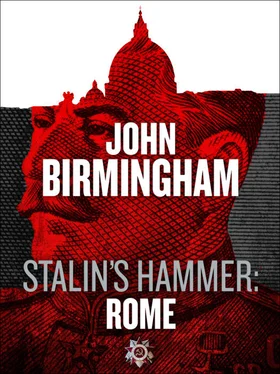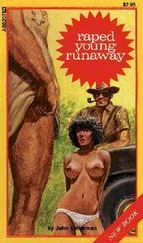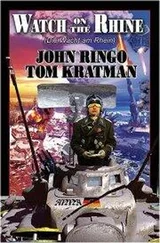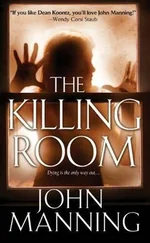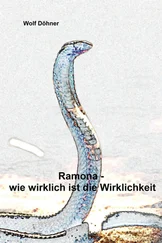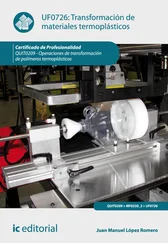John Birmingham - Stalin's hammer:Rome
Здесь есть возможность читать онлайн «John Birmingham - Stalin's hammer:Rome» весь текст электронной книги совершенно бесплатно (целиком полную версию без сокращений). В некоторых случаях можно слушать аудио, скачать через торрент в формате fb2 и присутствует краткое содержание. Жанр: Альтернативная история, на английском языке. Описание произведения, (предисловие) а так же отзывы посетителей доступны на портале библиотеки ЛибКат.
- Название:Stalin's hammer:Rome
- Автор:
- Жанр:
- Год:неизвестен
- ISBN:нет данных
- Рейтинг книги:3 / 5. Голосов: 1
-
Избранное:Добавить в избранное
- Отзывы:
-
Ваша оценка:
- 60
- 1
- 2
- 3
- 4
- 5
Stalin's hammer:Rome: краткое содержание, описание и аннотация
Предлагаем к чтению аннотацию, описание, краткое содержание или предисловие (зависит от того, что написал сам автор книги «Stalin's hammer:Rome»). Если вы не нашли необходимую информацию о книге — напишите в комментариях, мы постараемся отыскать её.
Stalin's hammer:Rome — читать онлайн бесплатно полную книгу (весь текст) целиком
Ниже представлен текст книги, разбитый по страницам. Система сохранения места последней прочитанной страницы, позволяет с удобством читать онлайн бесплатно книгу «Stalin's hammer:Rome», без необходимости каждый раз заново искать на чём Вы остановились. Поставьте закладку, и сможете в любой момент перейти на страницу, на которой закончили чтение.
Интервал:
Закладка:
John Birmingham
Stalin's Hammer: Rome
Prologue
April 13, 1955: Central Siberia
Joseph Stalin knew he was being watched. He closed his eyes and adjusted the soft, red blanket that covered his legs, like a child hiding under his bedcovers, thinking that if he could not see the monster, the monster could not see him. The sun was warm on his face, and bright, through his paper-thin eyelids. Sitting there in his wheelchair, his face turned up, eyes closed, it was possible to imagine the whole world was a pink, warm womb.
He let his chin slowly fall to his chest before opening his eyes and turning his glare on Beria. “We are delayed, Lavrenty Pavlovich. To what end?”
Stalin patted his pockets, looking for his old pipe, forgetting that he had not smoked in years. The doctors had said it would kill him. Frustrated at the delay, frustrated at the doctors, angry that he could not enjoy a simple pipe, his scowl grew darker. Once upon a time the toughest men in Russia had quailed at the sight of him playing with that pipe. To turn it this way and that, to stroke the bowl with his thumb while never moving to pack even one shred of tobacco in there-that was enough to signal his displeasure. Enough to make strong men quiver with fear. Now when he patted his pockets, he just looked like an old cripple, forgetful and failing.
Still, what little color Beria had in his face leached away at the thunderous look on Stalin’s. That was something.
“No delay. There is no delay, comrade. Everything is running to schedule.”
The chief of the Functional Projects Bureau stammered over his last words and nervously checked the iPad he carried. A rare and valuable working model, an Apple original, salvaged from the emergence of the British stealth destroyer way back in 1942, it was still sleeker and more powerful than anything the Functional Projects Bureau had managed to produce. Then again, it was also vastly more elegant and powerful than any of the cheaper Samsung or Google flexipads they had also salvaged.
Stalin waved him off with a backhanded gesture. “Gah. Enough excuses, Lavrenty Pavlovich. Begin the demonstration. I have many days of travel to return to Moscow. Push your buttons. Bring down the sky. Be done with it.”
“The satellite is almost in position now,” Beria assured him. “We must retire inside.”
His bodyguard leaned forward. “ Vozdh? ” he asked, seeking permission to move him.
“Yes, yes,” said Stalin, who did not really want to give up his place in the sun. The winters grew longer as he grew older. He was certain of it. Soon, the leaves on the small stand of trees outside his apartment back in the Kremlin would turn red, then gold, then brown. He adjusted the blanket again-an old habit, it had not moved-and tried not to let his disappointment show as his guard wheeled him off the terrace and back inside the bunker.
He felt the chill as soon as they passed into the shadows of the deep concrete passageway. Solid-iron blast doors rumbled behind him as the small party of high officials, bureaucrats, and technicians filed in, trudging in procession to the bunker from which they would monitor the test. Moisture leaked from the thick concrete walls, giving Stalin pause to worry about his arthritis. He regretted having insisted on traveling all the way out here to witness the test firing for himself. Then he smiled. Beria undoubtedly regretted it more, and that was cause for some mild amusement. Stalin knew his deputy premier would be fretting now, squirming inside like a greasy little weasel, anxious that nothing should go wrong.
The tension in the control room was tangible. He could feel it on his skin, taste it even at the back of his mouth. It was a familiar taste, of a fine vintage. He had been supping on men’s fears for so long, he actually believed he could take some nourishment from it. The scientists and military officers-no, they were NKVD Spetsnaz; Beria’s thralls, not Red Army, he reminded himself-all did their best to avoid catching his gaze. Beria scuttled about, snapping and hissing at the technical staff, his spidery white fingers stabbing so hard at the screen of the iPad that Stalin thought he might punch it to the floor. That would be amusing.
His bodyguard-it was Yagi today-wheeled him past banks of computer terminals, monitoring screens, and control boards dense with flashing lights and illuminated buttons. The supreme leader of the Soviet Union understood none of it. The technology was all plundered from the far and impossible future, the world that could not be.
He would never see that particular future. He knew that, of course. Accepted it. Life ebbed away from him now-in spite of all the new “miracle” medical treatments and organ therapies, life itself retreated from Joseph Stalin on a quickening tide of years and minutes. But nobody else would see the future from when Kolhammer and his international fleet had Emerged either, because he would not let it come to pass. He would not let it be, this false future where Putinist thugs and bandits ruled the Rodina, where the revolution was mocked and mourned. And dead.
It would not be.
At a word from him, as long as Beria had done his job, the sky would fall in on the world outside this bunker, and the real future would draw that much closer. Yagi brought him to a stop a few feet from the viewing port created especially for him. The armored glass was seven inches thick, they had told him, and the reinforced concrete wall of the bunker at least three feet deep. Peering through this personal viewport was a little like looking down a short tunnel. The glass distorted the view somewhat and gave it a dark green tinge. Steel shutters stood ready to slam down if needed, but he could not see them. Nobody could. Only a wheelchair-bound Stalin and one of the technicians, who was a dwarf, were of a height to have an unimpeded view through the port. Everybody else had to make do with the viewing screens. There were dozens of them about, but the two largest ones hung from the wall directly in front of him, above the viewing slit.
The room was chilly, a function of all the infernal computers, which always seemed to be in danger of overheating. The cold, stale, recycled air irritated his eyes and seeped into his bones, but it awoke his senses, and he did want to see this. It was why he had traveled so far east, beyond the natural barrier of the mountains.
Involuntarily he glanced upward, imagining American satellites prowling overhead, peering down on him. But there was only the low ceiling of unrendered cement. And above that, tons of rock.
“You are sure Kolhammer is not watching this on some television in the White House?” he growled at Beria. “They are always watching us.”
Startled out of some reverie, the NKVD boss jumped a little and even squeaked. He was more nervous than usual. “We have done our best, our utmost, to draw their attention away from the proving grounds,” he said, stammering as before. “Ten Red Army divisions and fraternal bloc forces are exercising as close to the Oder as we dare. There have been incidents. I made sure of that personally. What satellite cover they do not have watching us there will be trained on Admiral Koniev’s newly unmasked fleet base. This is all settled, Vozdh . By your very self.”
Stalin waved him away again, a stock gesture when dealing with Beria. He knew everything the man had just said, but he wanted him to repeat it. If Beria’s plan to mask the Hammer Fall test failed, Comrade Beria would pay the price. Not Stalin.
Klaxons and sirens began to sound all around them, and somewhere in the distance he heard the deep-bass rumble of more blast doors sliding into place. The countdown clock between the two large viewing screens clicked over to ten minutes.
Читать дальшеИнтервал:
Закладка:
Похожие книги на «Stalin's hammer:Rome»
Представляем Вашему вниманию похожие книги на «Stalin's hammer:Rome» списком для выбора. Мы отобрали схожую по названию и смыслу литературу в надежде предоставить читателям больше вариантов отыскать новые, интересные, ещё непрочитанные произведения.
Обсуждение, отзывы о книге «Stalin's hammer:Rome» и просто собственные мнения читателей. Оставьте ваши комментарии, напишите, что Вы думаете о произведении, его смысле или главных героях. Укажите что конкретно понравилось, а что нет, и почему Вы так считаете.
